Jennifer Freitag's Blog, page 41
January 6, 2012
Now I See The True Old Times Are Dead
 But the other swiftly strode from ridge to ridge,
But the other swiftly strode from ridge to ridge,Clothed with his breath, and looking as he walk'd,
Larger than human on the frozen hills.
Morte d'Arthur, Alfred Lord Tennyson
Having finished reading Harry Blamires' The Kirkbride Conversations, my interest took a little turn and I pulled Hope Muntz's The Golden Warrior out of the stack of books I want to read. It is a good, sturdy-looking book, hardback and royal blue, dedicated (to my heightened interest) to none other than "The Rt. Hon. Winston Spencer Churchill." I plan on reading such works as The Conquering Family and When Christ and His Saints Slept, so I thought it would be logical to start the race off with Harold and William. I am told that the beginning (which this is, strictly, not) is a very good place to start.
This is strictly not the beginning of the saga. Enormous figures have already strode across the haunted hills of England and the prologue, which I am in the midst of, is summing up the imprint of those giants. I have a suspicion that, if anyone cared, you could do a sort of Godfather-styled retelling of Earl Godwin and his family, but perhaps that is a proposition for another day... Now, in the Earl's confiscated hall at Guildford King Edward and his cousin Duke William Bastard (an un-charming if accurate appellation) have sat down to dinner and, under the natural genius of the hall's former owner, have fallen back on accounts of Godwin's heavy-handed dealings. I already know a little bit of all this so I was jigging slightly in my chair, reading along with an eye to get to the Hector of the tale (don't hit me, Abigail), when the Norman Achilles, a dark, terrible kind of figure, says darkly of the exiled Godwin:
"He is a man who will dare all things."
I am always on the look-out for inspiration. You never know where it might show up and you have to be ready for it. This, on the other hand, was a summing-up (far better than I could have done, though I tried) of my own Plenilune antagonist. Across nine hundred forty-something years I could still feel the fear, not of some over-bearing villain, but of a foe to be reckoned with. As I pen-stab at my own story, trying to translate it out of my own mind into ink, I feel among the lords of Plenilune that same worry: that the wolf, which does not sleep, will come out of the dark, and will dare all things.
So here is to Hope Muntz, and Duke William, and Earl Godwin for that matter. What a horrible time of horrible men! They make good models for stories, even if they made bad men. Well, with histories like these, who needs novels?
"I smell a rat."
Centurion of Darkling-law, Plenilune
Published on January 06, 2012 13:41
January 3, 2012
An Opportune Time
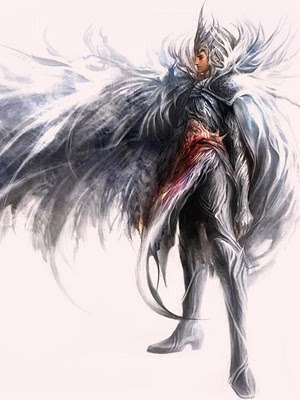 how wearisome
how wearisomeeternity so spent in worship paid
to whom we hate
Paradise Lost, John Milton
This detached, experimental piece of writing is for Daddy (who knows what I am about, I think) and for anyone else who might like to see what rumblings of writing lie beyond Plenilune. Indeed, these rumblings are so far beyond Plenilune that the following is highly subject to change, but he told me to start writing the little pieces that were coming into my head, so...dig one's own grave, you know, and all that. Cheers!
* * * * *
"Ai Ring."
Time, like claws, dragged agonizingly by while the Endless bent solitary over the tabletop, watching the riot of feverish motion before him, watching as from a very great height and from a long way off the heaving movement of kingdoms under his hands. His left hand, pale as the featureless walls of the room and as white-lit, was splayed over Cormontium and Iber and their shared sea: between two fingers was the effigy of the very man who stood just within the doorway, waiting his attention.
"Ai—"
He slid his white gaze to the side; the movement of the table came to a halt. His hand closed over the little figure.
Jewel's eyes, never quite willing to meet Ring's, never quite willing to be wholly afraid, dropped to the same figure—a perfect likeness—and then moved upward again, nearly looking back into the Endless' eyes. The Endless did not like the look he saw on the man's face: a sickly, uncertain sort of look, as if there was something too good and too horrible going on inside that man's mind. Almost he strode forward, impatient with a man's need to search for the right words, and conjured the words by force out of the lisping mouth. But he did not. He waited, the chess-piece figure of the priest weighing with a tell-tale lightness in his palm.
In the wake of a deep breath Jewel began. "Sir, you told me to keep good guard in case he infiltrated our order. You told me to keep watch and to listen for any sign of him, for the least sign of him. Well." He touched his tongue to his dry lips. "The long and short of it is—we found him."
Oh, the sweet rage of joy! Ring strode forward three paces before he knew what he was doing, the bird-rushing thunder of his movement rattling at the fabric of the air; towering white over the little man, trailing red after himself through the air where the clock-glass had cut him and the cuts had not healed. From a distance came to him the tiny sound of Jewel's piece falling, falling, rolling across the world's tabletop. Jewel himself shook under that advance but, foolish and human-like, he did not back down.
"How many people know?" the Endless demanded.
Jewel risked a short bark of laughter. "No one. After the rebellion no one dares believe anything. It is far too dangerous. No one much wants to die."
Ai Ring looked back at the table, head canted to one side, an almost tender expression playing at his mouth. "Whether by design or by foolishness, I think he could not have picked a more opportune time to walk into my hands." There was a crack and splutter like lightning and he held up a hand, the hand which had held Jewel, to display a new effigy.
"A good likeness," said Jewel.
A good likeness! Was there anything good about so hateful an appearance? The hair was red like flame, not blood, the countenance full of mockery even in lifeless pantomime. If Ring could he would have pressed the little thing out of life between his palms and, if it were possible, have pressed him out of life as well.
Jewel said gently, "What would you have me do?"
Ring came back out of his disquieting thoughts. "Do what you like for now. I will come in my own good time. I give you leave and power to do with him as you please, only do not touch his life," he added, his tone so warning and awful that Jewel blanched as if in the force of a gale. "I hold that in my hand and it is mine."
"Yes, Ai Ring."
Published on January 03, 2012 14:50
January 1, 2012
Janus
 "Yes," said the Lion in a very quiet voice, almost (Jill thought) as if he were laughing. "He has died. Most people have, you know. Even I have."
"Yes," said the Lion in a very quiet voice, almost (Jill thought) as if he were laughing. "He has died. Most people have, you know. Even I have."The Silver Chair, C.S. Lewis
For some reason - no, rather I should say, for some intuition I feel this is for Rachel. I say that because I could not tell you why this passage and this girl ought to go together. Perhaps it is merely because it is high time the girl got something specially from me. How odd a thing it is to dedicate one's dreams to another!
* * * * *
I realized that for a while I had assumed he had fallen asleep, for he was so motionless and quiet, and it was the perfect place for a cat-nap. I looked up from my notebook, my left hand automatically clicking the cap shut on the pen in my right; I looked up at his face, to see if he was still with me. He had his head back against the tree on which he leaned, his face turned away. I could not tell. After waiting a moment to see if my gaze might leak into his consciousness I gave up and looked away again.
The landscape was worth the pause. We sat together on a little hillock under a bare crab-apple, a place mostly of sunshine with little swallow-tail lancings of shadow, and all around us under the warm pale sun was the gently rolling spread of an ancient cemetery. There were no roads through it, only double-wide trackways for the hearses and little stone foot-paths around the graves and mausoleums. I took in a deep breath and tugged my knees up against my chest, squashing my notebook close, pulling in the fresh scents of autumn. Everything was a flame-colour around me: green and pale blue, ruddy, rich, wine-bright. I breathed the colour in and felt the flame of it flicker through my veins.
"It is very peaceful here."
A gust of wind blew through my hair, obscuring the world in bars and streaks of chocolate and copper. "So, you are not asleep."
He turned his head to me, still resting it on the tree-trunk. I saw in his eyes the same as I felt: the languid sleepy richness of the open, the quiet open, which was to us like sleeping while awake. It was a good, comfortable, familiar thing to us, and he was happy—happy in that warm, half-melancholy way of his—and because he was happy I was too.
He asked, "What is it that you write?"
"Do you know what I wish?" I replied. I turned my head so that the wind blew my hair out of my eyes instead of into them. "I wish I had a quill that wrote with fire instead of ink."
"Mm," he purred understandingly.
There was a stream at the foot of the cemetery, quite a distance off and a thread of pure blue under the pure blue sky. I could see a little blot of darkness on the surface of it and thought how grand it must be for geese to have so many skies to fly in, overhead and on the looking-glass sky of water.
I had the habit of going outside myself, trance-like, whenever I spoke in my own familiar language, because I am shy. I did not need to do it for him, but somehow the scenery and the geese on the water and the autumnal sky pulled me out regardless, and I spoke in my familiar language.
"It is a death-scene of sorts, for it seemed a good time and place to write, here, where it is quiet, where I can think, and Death's train is raking up the leaves behind him as he keeps vigilance."
"Of sorts?" he queried, one brow rampant. But he folded his arms around his thin frame and hunched forward, gazing off with a pensive look that, if you did not know him so well as I, you might mistake for darkness. I watched him for some time as his eyes roved over the landscape, waking with light and quenching with shadow, and waking again; I watched him and the thoughts that ran through the light in his eyes.
"There is a deep thing in your face." I broke the silence at last. "What do you think of?"
He continued to stare, but he was very with me when he said, "This is a good plot of land. I think I will take it." The corners of his mouth, which always had a touch of unconscious bitterness to them, twisted the bitterness into consciousness once more. "Maybe it is the height and overlook. I've always felt that handicap of mine somewhat keenly."
I frowned, but forced a smile through the frown. "What of that? So do I. But you are tall-seeming, and that is enough. And anyway," I settled back around, sliding over to press my own tired back against the supporting tree, "I am your Bad Wolf. I give you immortality."
The bitterness flickered away beneath his steady pulse of warmth. He scooted through the grass to a nearly prostrate position, folding his arms behind his head; I could see the sky reflected so pale in his eyes, his eyes were almost silver but for their single spots of jet. It was like looking in the blue-jay's eye, and it made me shiver.
"I have been thinking about death," he admitted.
I looked sidewise at him sharply.
He sniffed and canted his head on his arms, looking up at me. "Truth to tell, it's a subject that has dogged me for almost all my life."
I was sitting tailor-fashion, and leaned forward a little awkwardly to steal the handkerchief from his coat-pocket so that my hands might have something to meddle with. "So?" I replied carefully. "Truth to tell, it has dogged me too. I was too young then to remember it now, but my parents tell me I felt the need for God-life after my grandmother's funeral." I smiled wryly and gave the handkerchief a mighty tug between my hands. "Funny odd thing, isn't it? I've always felt the need for things to be right. It seems right that death should have prompted my salvation."
"Mm," he said, and for a while we were silent.
I unfolded one corner of the handkerchief and rubbed my fingers over the shiny black thread of the monogram. I asked without looking up, "What were you thinking specifically about death?"
"After it."
"You mean the afterlife?"
"No," he insisted gently, "I mean the afterdeath."
I waited patiently for him to go on, but he seemed to be thinking of this as he went, for it was rather a long time before he continued, and a cloud came across the sun meanwhile that chilled me. Thankfully it went away again, and I stretched my arms languidly in the light, like a cat.
"I mean after death," my companion went on, stretching likewise. "You know me, Half-pint. I hate death. I hate pain. They are so uncomfortable and so wrong and so—ever-present. Death hangs over all of us. Death hangs over everything. That is the curse. Death is the midwife that brings us all into the world, the unknown certainty of death following every child to adulthood, and seen at the end of the road waiting to receive us at the end. We all expect it as we expect some horrible surgery that we cannot avoid.
"You and I can look beyond that. We can expect a life after death—or, rather, a life whose vein runs deeper than the knife of death can plunge. We look beyond death to something better. But I have been thinking, after a lifetime here of living under the looming shadow of death, who could help but look back from the other side of it with relief?"
He was a conjuror. His words, like magic, thrust into my chest and grabbed me, heart and lungs and throat. I could not breathe. I could not see through the sudden spate of tears. I hung suspended in the thinness of my limbo-state in which I lived solely on the throb of his words.
There was a moral somewhere in that, I thought.
"After all that waiting, after all that tension of waiting, what spirit would not look back on the veil, on the darkness, on the surgery, and think, 'It's done'? It's done. The worst is behind. There would be yet the resurrection, and nothing will be right until the resurrection, but death will be done and over with and behind us. The last worst pain. The last worst loss. The last worst severing from all earthly constraints. The last unknown into which we must go. We can look back on it from there and say—"
"It's done."
The words out of my mouth seemed to send spider-fine cracks across the surface of my thinness. Any moment now they would break, and I would be bare under that cold November wind.
He sat back up, hunched forward once more with his arms laid across his knees. With the sun and the wind in my eyes everything was like looking through cut glass, sharp, distorted, blinding bright.
"It is still frightening," I said suddenly.
He thrust both shoulders up in an admitting way. "Of course. Just because you will be on the other side of the surgery does not make the surgery itself any less frightening. But there is an end to the surgery, and there is an end to death, too." He smiled grimly. "I wonder what death will look back on."
"The wonders of Ozymandius," I supplied.
"And despair."
I nodded.
"No," he went on rapidly, "we'll have a new king, and a new minting, and sin's old coinage will be obsolete." He turned up one hand and began idly rubbing his right thumb into his left palm, as if he could feel a kind of coin there already. "It is going obsolete already. We will pay the last toll exacted from all mankind. You have never been in debt—you don't know the relief of having the last cent paid off and your books cleared."
With characteristic stiffness he got to his feet, groaning a little, and stood against the racing backdrop of light and shadow, his hands in his pockets, the wind in his hair. I sat at his feet still, looking first from his face, which was far from me and almost awful, and then at the landscape, outflung like the wing of a phoenix before us.
His voice was hushed and urgent. "How like Janus we are, Half-pint! How curious it is that the Everlasting Now of God is broken up for us into pasts and presents and futures. I have spent my life thinking of now, and on occasion I have looked back, and I have thought of then—" he withdrew one hand and pointed to the far horizon, west of west "—but not until recently have I thought of looking back from then. It is a curious and strangely relieving thing."
"I have found," I remarked, getting up and taking him by the arm, for it was nearly time to go. "I have found that God's curious things usually are."
His eyes flashed laughter like a kingfisher's wing. "Come, you!" he said, bending to snatch up my notebook and thrusting it into my free hand. "Finish writing the death-scene of sorts for this story before he finishes writing yours."
"I have broken the thunder of my pen," I said accusingly, "now that we have gone on so long. Besides, I don't believe death writes us out at all. That is the problem with most thought."
My companion reached back and did violence to the collar of his coat, jerking it up around his ears as the wind, now that we were most free of the low turf, blew with an angry sea-fierceness into our faces. "No, no," he said, waving me off with his words. "I have tea and small-talk to conjure. That is a conversation you and I must have another day."
I laughed and went down the hill with him, though which of us supported the other, I could not say.
Published on January 01, 2012 13:39
December 31, 2011
I Declare After All
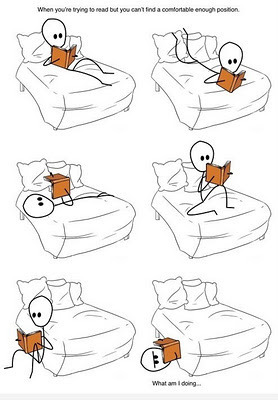 ...there is no enjoyment like reading...
...there is no enjoyment like reading...Jane Austen
For a while among my blogging circle I seemed unique in that I had no desire or, seemingly, capacity to compose a list of books I would really like to have read by the time A.D. 2012 has lost itself among the backward annals of time. It seems that, unlike most of you, I don't possess the iron will required to really plough through a book I don't particularly like. I just flung down one this afternoon in a height of dudgeon, completely apathetic toward finishing it. Unlike most of you, I don't ever seem to get the chance to say, "I read The Thing of Such-and-Such by Mr. Whatever. I didn't really like it, but I finished it, and that's that." Additionally, I never really plan what I am going to read. When I feel it is 'time,' or when a book catches my fancy, I read it.
So the list I am about to compile is subject to change, and you should probably only call is a 'list' advisedly. "You can carve it in stone," said Barnaby. "I'll still deny it." But here, at least, is what I would like to read this year, not because this year or these books put together make anything particularly special, but because my temporal frame travels through time rather linearly and because this upcoming year seems, therefore, unavoidable, and because (most importantly) I want to read these books.
The Art of Medieval Hunting: the Hound and the Hawk - John Cummins (in progress)
David Copperfield - Charles Dickens (in progress)
The Kirkbride Conversations - Harry Blamires
The Everlasting Man - G.K. Chesterton
Beowulf - Mr. Whatever (again!)
The Golden Warrior - Hope Muntz
Mere Christianity - C.S. Lewis
The Discarded Image: an Introduction to Medieval and Renaissance Literature - C.S. Lewis
Moonblood - Anne Elisabeth Stengl (when it comes out in April)
When Christ and His Saints Slept - Sharon Kay Penman
The Four Loves - C.S. Lewis
The Darkness and the Dawn - Thomas B. Costain
The Conquering Family - Thomas B. Costain
The Improvement of the Mind - Isaac Watts
Sword Song - Rosemary Sutcliff
If I put in much more I will be overreaching myself. When Christ and His Saints Slept looks daunting enough; coupled with The Improvement of the Mind (whose font is minuscule) I feel positively drowned in verbiage. If you calculate in a peppering of rereads (some bizarre and irrational part of me wants to reread The Lord of the Rings), it may be a busy year.
Speaking of bizarre, I have not yet got used to seeing my name - my name - turn up in a "my favourite authors" list, sandwiched between C.S. Lewis and Charlotte Bronte. I tell you, it's a mad, mad world.
Published on December 31, 2011 11:42
December 29, 2011
New Year Writing Contest
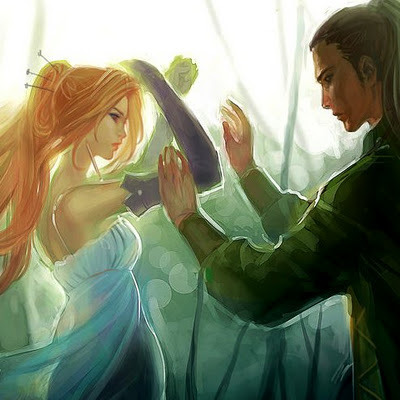 It's a new year (very nearly) and it's time for something new at The Penslayer and Scribbles and Inkstains. In honour of the writers who so faithfully follow these blogs of ours, who have expressed such encouragement and interest in our work, Abigail and I have put together a writing contest for the month of January (2012). Here are the details of the campaign:
It's a new year (very nearly) and it's time for something new at The Penslayer and Scribbles and Inkstains. In honour of the writers who so faithfully follow these blogs of ours, who have expressed such encouragement and interest in our work, Abigail and I have put together a writing contest for the month of January (2012). Here are the details of the campaign:wordcount
Each entry must be 200 words or less. This may not seem like much (and it isn't) but don't panic. We don't expect you to condense a full story into so few words.
subject
The theme will be first impressions. This can be a character's first impression of another character, of a thing, of an animal... Think of it as you introducing a new subject, whether animate or inanimate, to the reader. (200 words doesn't seem like much now, does it?)
quality
You are all so vastly different in your styles, so don't try to fit your entry into a specific style or genre. We would like to see prose, but if you are better at poetry, or poetry just "comes," use that instead. Be sure to note your spelling and grammar as we try to be very particular about excellent English. Write your very best, we dare you!
rules and regulations
Entries will be limited to two per person. (Note: two entries is an option, not a requirement.) Obviously, keep it clean; we'll be posting the winning entries (as long as the authors don't object), so they have to be ones that we're comfortable putting up.
prizes!
After the contest closes, Abigail and I will choose first place and second place winners. First place winner will receive one copy of each of our novels, The Shadow Things and The Soldier's Cross, as well as a critique of the first chapter of his or her novel. Second place winner will receive a critique of the first chapter of his or her novel.
Please email your entries to sprigofbroom293@gmail.com and jeanne@squeakycleanreviews.com.
If you have any questions, be sure to ask. And if not - start writing!
Published on December 29, 2011 07:17
December 27, 2011
To the End of the Way of the Wandering Star
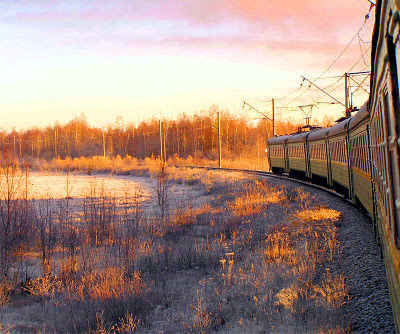 A child in a foul stable,
A child in a foul stable,Where the beasts feed and foam;
Only where He was homeless
Are you and I at home;
We have hands that fashion and heads that know,
But our hearts we lost - how long ago!
In a place no chart nor ship can show
Under the sky's dome.
G.K. Chesterton
I was perched in a low-slung camp chair made of wood and cloth, not unlike the sort my ancient friends are accustomed to using, somewhat cold for the basement is chilly (particularly this time of year) content to be quiet and to read. I had finished my scribbles and had moved on to some rather complicated notions by an old author about Kruger beards, and while I was trying to get a handle on this I was deftly ignoring my own notion that I ought to go work on the bike and get some exercise in. There is nothing like reading to displace physical labour. But in the middle of this, quite suddenly and without the least flicker of warning, out of the damp grey woody quiet of the winter's visage through the window came the long, loud, throaty roar of a train's horn. Like a hound which hears the mote I raised my head at once and stared out the window (you could see nothing through it, save bare tree branches and sorry wet sky); on the horn went, thrilling, roaring, blazing like some kind of golden fire through the colourless atmosphere around me. I did not move and I did not speak, but a lot moved in my soul and my soul said a great deal in that long timeless moment that the train went on, calling out its obligatory warning.
I have always considered trains to be a timeless sort of thing. Maybe it is the result of romantic notions passed on subliminally into my mind. Whatever it is, I have always considered them timeless, more than half sentient, running on their iron veins, hidden, through the fabric of society. Society, like tops, whirling in circles and getting nowhere much, goes on, while the trains rush through it all with a kind of terrible, iron purpose, touching nothing, nothing touching them. And as I have been thinking for some months past about the nature of the Kingdom, with that one train that I heard this afternoon (I do not know its name, where it came from or where it is going, I only heard the sound of it), it was a very simple thing for me to see, not the black-sided figure of a Norfolk Southern engine shrilling out through intersections of rail and road, but a blazing, white-hot-iron creature screaming intently through time and space, hurtling toward its goal, itself timeless and its passengers too, hurtling faster and building light as it went - and wherever the slog of time-bound traffic and the cruel blank blackness of asphalt fell across its path it sounded its horn (rally or mort I do not dare to say, perhaps both at once) as a kind of exultant warning to the whirling people around it.
I saw that half-sentient, immortal thing and its comet-streak of light with my mind's eye for a moment (a moment which left, I am sure, a tell-tale burn-mark somewhere on my soul, probably where my spirit and my heart touch) but I got to see that kind of light with my mortal eyes later when I was driving home. The sun had come out and a high, strong wind was up, roaring like the world's last ocean in the world's last autumn leaves. Clouds were tearing at break-neck speed across the sky and I stopped to look up for the note (of rally or mort I do not know) was still in the air, if only the echo of it, and I felt it rather than heard it. So I had to look up. At first I saw that the clouds were across the sun, and then I thought I was wrong and that the sun, become far more huge for closeness, had come down out of its plane and hung in middle earth's atmosphere, enormous, horribly bright, making arms of light for itself out of the racing, shredding clouds so that I could barely look for long. But I did look. I remember that the stars once spoke of high deeds around the years of Jesus's birth and the magi, intent upon such celestial languages, caught the writing in the heavens. Now it seemed, to me, that our own star was saying something about high deeds as well and a high kind of man to do them. Like Simeon I lifted up my eyes and saw the Consolation of Israel and the Light to the Gentiles coming through the clouds, burning like the sun in splendour, and all the windy blue of heaven the high laughter of all the angels.
it's a window in the world, a little glimpse of all the goodness getting through
I have come inside now out of the cold. The late light is lying coppery and gold on the grass and appears quite warm seen from the comfortable environment of my heated room. But I can see by the whirl of the branches that the wind is still roaring strongly, and where it comes from and where it is going I don't know. But somehow I imagine that great, solid, diffusing sun knows, and it knows where that blazing train hails from, too, and where its station lies. I look at the setting sun and I know I am looking west, but from the windows of the train I am not certain what I see, save that I know the light is growing both in the train and from whatever horizon it hurtles toward. What are east and west? what are north and south in a place beyond all compass points, in a place that is the centre of the compass itself? That is where the station is, that is where the light comes from.
I hear the hunting cry of the train again, ethereal, coming from a place where there is no time and space, to me in time and space, and something in me breaks under the realness of its weight.
Published on December 27, 2011 13:12
December 22, 2011
"A Triumph, My Dear, Another Triumph!"
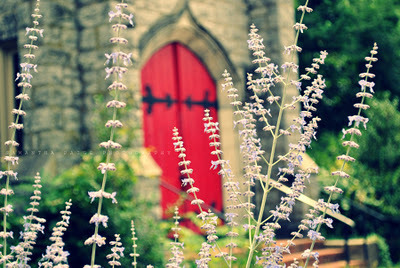 Okay, so, I lied. I did manage to finish The Reformers and Their Stepchildren, rather to my surprise, so I have read thirty books this year (2011). That's a rather nice feeling, having read a pretty round number of books. Not a very large round number, but it's respectable. Numbers ought to be respectable, and I think thirty is. None of these errant variables larking about. Good, sound, whole, round numbers like thirty. Good note to end a year on.
Okay, so, I lied. I did manage to finish The Reformers and Their Stepchildren, rather to my surprise, so I have read thirty books this year (2011). That's a rather nice feeling, having read a pretty round number of books. Not a very large round number, but it's respectable. Numbers ought to be respectable, and I think thirty is. None of these errant variables larking about. Good, sound, whole, round numbers like thirty. Good note to end a year on.I haven't been pushing myself too hard on Plenilune lately, since it is the holidays and my energies are needed elsewhere. It's rather odd: at a time when everyone is getting off something to have their holidays, I feel as if my holidays are being put on the shelf and the busy times are rolling out. I always was a bit backwards... But here are some snippets and cut-outs of what I have been scribbling for Plenilune. Enjoy, and happy plum-pudding! (Feel free to offer thoughts on the snippets, but please just eat the pudding.)
excerpts from Plenilune
Her cheeks cooled, still in her soul, Margaret turned at last from the window and sat on the edge of the bed to undress. She could still see a little of the landscape through the window: a pale, ghostly thumbnail of a picture, a gash of far upland cut level and coloured like the impassive face of a diamond. The wind moaned desolately, and seemed to get in through the chinks in her skin and blow about desolately in her soul as well. Down in the dale an owl hooted which, as her fingers fumbled in the weak light of her lamp with her dress, reminded her of the hunt, of the fox, of the fox in Rupert's cellar. He would be sitting in a light much like this one, alone much like she was, looking out a dark like herself. Was the little red-coated coward thinking of her as she thought of him?
As Margaret stepped into the courtyard and to one side Skander's courser, a big-boned blue dun with a mind of its own, was being brought out of its stall and was making a fuss about its handler and the presence of a lean yellow dog that had somehow got in. The dog began to bark, the blue dun went up in a twisting rear on its hindquarters—nearly wrenching free of the stableboy's hand—and there was an enormous flutter of bodies as people ran to put out the fire that was about to blaze up between the horse, the dog, and the boy.
The singsong dog-snarl of the lord's red clothing trembled through the garden as he came through the lower gateway and passed at a collected trot up the path. She could not get a clear sight of his face for the tree-branches until he was nearly beneath her—his horse seemed to hang a moment in hesitation at the upper gateway—and then she could see as clearly as if they were on level ground face to face what sort of face he had. It was a fleeting moment, one in which he was not on guard for her since he did not see her, and she saw him very nearly perfectly as he was. His hair was thin and pale grey, cropped close, his brows thick but pale grey too; his features were all heavily hung, and yet strangely empty, as if they had been big and full once, but time had sucked the life from them and left them cobweb-bare. Scarred, grey, wrinkled and haggard, but with a cold and ruthless spark in his eyes that would make Rupert look warm and rustic, Margaret thought that if Julius Caesar had lived a long life, he would have looked like this.
The evening was overcast, a delicate plum-colour, open in the west where the sunset made everything orange. Above the west the clouds were pierced, here and there and raggedly, as with a spear, and the sky in the gaps was, not blue, but a purest, brilliant moony-gold as though the Church had left the door to the Kingdom ajar and Heaven's light was flooding through.
Published on December 22, 2011 10:21
King John's Christmas
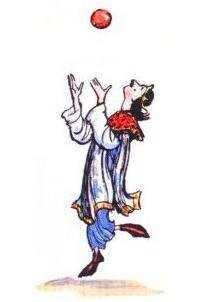 I like poetry in a friendly, indifferent sort of way. It can be very pretty, and very well written, and sometimes approach reality better than prose, but I don't usually go out of my way to find it or use it. If it wants to come to me I'm fine with that. But in my indifference I do have a few favourite poets, like Tolkien and Lewis and Kipling, and one fellow (regretfully) best known for a certain Edward Bear, an A.A. Milne - which sounds as if you are looking for an any-day noun and can't quite remember the name of it, and pausing on the article a moment or two before you recollect it: "A...a...Milne! That's right. One of those." One of my favourite poems is a Christmasy poem of his about a certain King John (he's not easy to miss - there was only one), and the historical accuracy of this poem cannot exactly be vouched for (in fact it would be ill-advised to do so), but how can you not love a poem written by a Milne who can write things like "TIDDLEY-POM" and "BUTTERED TOAST"?
I like poetry in a friendly, indifferent sort of way. It can be very pretty, and very well written, and sometimes approach reality better than prose, but I don't usually go out of my way to find it or use it. If it wants to come to me I'm fine with that. But in my indifference I do have a few favourite poets, like Tolkien and Lewis and Kipling, and one fellow (regretfully) best known for a certain Edward Bear, an A.A. Milne - which sounds as if you are looking for an any-day noun and can't quite remember the name of it, and pausing on the article a moment or two before you recollect it: "A...a...Milne! That's right. One of those." One of my favourite poems is a Christmasy poem of his about a certain King John (he's not easy to miss - there was only one), and the historical accuracy of this poem cannot exactly be vouched for (in fact it would be ill-advised to do so), but how can you not love a poem written by a Milne who can write things like "TIDDLEY-POM" and "BUTTERED TOAST"?King John was not a good man —
He had his little ways.
And sometimes no one spoke to him
For days and days and days.
And men who came across him,
When walking in the town,
Gave him a supercilious stare,
Or passed with noses in the air —
And bad King John stood dumbly there,
Blushing beneath his crown.
King John was not a good man,
And no good friends had he.
He stayed in every afternoon...
But no one came to tea.
And, round about December,
The cards upon his shelf
Which wished him lots of Christmas cheer,
And fortune in the coming year,
Were never from his near and dear,
But only from himself.
King John was not a good man,
Yet had his hopes and fears.
They'd given him no present now
For years and years and years.
But every year at Christmas,
While minstrels stood about,
Collecting tribute from the young
For all the songs they might have sung,
He stole away upstairs and hung
A hopeful stocking out.
King John was not a good man,
He lived his life aloof;
Alone he thought a message out
While climbing up the roof.
He wrote it down and propped it
Against the chimney stack:
"TO ALL AND SUNDRY -
NEAR AND FAR -
F. CHRISTMAS IN PARTICULAR."
And signed it not "Johannes R."
But very humbly, "JACK."
"I want some crackers,
And I want some candy;
I think a box of chocolates
Would come in handy;
I don't mind oranges,
I do like nuts!
And I SHOULD like a pocket-knife
That really cuts.
And, oh! Father Christmas, if you love me at all,
Bring me a big, red india-rubber ball!"
King John was not a good man —
He wrote this message out,
And gat him to his room again,
Descending by the spout.
And all that night he lay there,
A prey to hopes and fears.
"I think that's him a-coming now,
(Anxiety bedewed his brow.)
"He'll bring one present, anyhow —
The first I've had for years.
"Forget about the crackers,
And forget about the candy;
I'm sure a box of chocolates
Would never come in handy;
I don't like oranges,
I don't want nuts,
And I HAVE got a pocket-knife
That almost cuts.
But, oh! Father Christmas, if you love me at all,
Bring me a big, red india-rubber ball!"
King John was not a good man —
Next morning when the sun
Rose up to tell a waiting world
That Christmas had begun,
And people seized their stockings,
And opened them with glee,
And crackers, toys and games appeared,
And lips with sticky sweets were smeared,
King John said grimly: "As I feared,
Nothing again for me!"
"I did want crackers,
And I did want candy;
I know a box of chocolates
Would come in handy;
I do love oranges,
I did want nuts.
I haven't got a pocket-knife —
Not one that cuts.
And, oh! if Father Christmas had loved me at all,
He would have brought a big, red india-rubber ball!"
King John stood by the window,
And frowned to see below
The happy bands of boys and girls
All playing in the snow.
A while he stood there watching,
And envying them all...
When through the window big and red
There hurtled by his royal head,
And bounced and fell upon the bed,
An india-rubber ball!
AND OH, FATHER CHRISTMAS,
MAY BLESSINGS ON YOU FALL
FOR BRINGING HIM A BIG, RED
INDIA-RUBBER BALL!
Published on December 22, 2011 06:19
December 19, 2011
Ready To Give A Defence
 In my post Are You A Teacher In Israel, And Do Not Know These Things? I dealt with the lack of religion in stories. As I put myself mildly succinctly in the post and feel as if I said pretty much what I meant I'll refrain from summing it up here, as I doubt I could do the summary justice. In the comments on the post Gwyn lamented the difficulty of portraying our faith in her own literature. Her exact words were, "I desperately want to portray the Faith in my novels, but I struggle to balance that thread with the other story lines {i.e. the actual adventure}. It either takes over the whole novel making it into 'just another Christian fiction' with foreseeable outcomes, or it's just a shallow undercurrent that doesn't feel necessary. There has got to be middle ground... somewhere."
In my post Are You A Teacher In Israel, And Do Not Know These Things? I dealt with the lack of religion in stories. As I put myself mildly succinctly in the post and feel as if I said pretty much what I meant I'll refrain from summing it up here, as I doubt I could do the summary justice. In the comments on the post Gwyn lamented the difficulty of portraying our faith in her own literature. Her exact words were, "I desperately want to portray the Faith in my novels, but I struggle to balance that thread with the other story lines {i.e. the actual adventure}. It either takes over the whole novel making it into 'just another Christian fiction' with foreseeable outcomes, or it's just a shallow undercurrent that doesn't feel necessary. There has got to be middle ground... somewhere."I know Gwyn is not alone in this (I struggle at times with this myself), and since the answer is much too big for a simple reply in a comment box, I am making an answer here. Rest assured that I do not flatter myself into thinking my answer will be by any means exhaustive. It won't be. Dear goodness, no, it won't be. But I do hope it will set any of you with this difficulty on the right track.
I find that difficulties and errors in Christian literature usually reflect a deficiency in the collective Christian mind. I will therefore answer this question, not directly, but firstly by addressing the nature of our Faith. We believe in the Lord Jesus Christ, the Son of the living God, whose perfect life was accredited to us at the canceling of our debts by his perfect sacrifice so that now not only are we called to be holy, we might be holy. I think I can be pretty confident that we hold that this holiness applies not merely to Sunday worship, but to every day of the week, to every detail of our lives, that we should "do all to the glory of God." We believe the life and righteousness of Jesus, credited to us, permeates every aspect of our very being - our existence - that when we live and move and have our being in him, he is the medium in which we live, like fish in the water.
If I have not painted a broad enough picture with this then I failed. I think you can see, our Faith covers everything. I think you can see, our Faith sinks deep. It is the air our spirits breathe. It is the light that lights our way. It is our compass, it is our walking-stick, it is our hope of home and belonging. I realize that this seems to play into the (perhaps) extreme of weighing a story down with "too much" religion. So we come to the second point.
There is a notion about these days that says the Church's primary purpose is to evangelize. That's what Jesus said, isn't it? "Go therefore and make disciples of all the nations, baptizing them in the name of the Father and the Son and the Holy Spirit, teaching them to observe all that I commanded you..." What people fail to realize is that their notion is blown to pretty bits by this very passage. Yes, of course, evangelism is a vital aspect of the Church. "How then shall they call on him in whom they have not believed? and how shall they believe in him of whom they have not heard? and how shall they hear without a preacher? and how shall they preach, except they be sent?" But what is woefully missing is the training, the discipleship. The Gospel is hurled broad-cast at any ground that falls under the preacher's eye, regardless of whether it is ready for seed or hard as rock. The important, the vital task of entrenching oneself in the midst of a professing people and helping through long years to cultivate good and sound faith, faith that will withstand temptation, tribulation, hardship, and (most fatal) prosperity is not being done enough.
The Church, therefore, is looked at (if it is looked at at all) upside-down. When you go to put your faith in a novel, or when your faith inevitably bleeds through every pore of that novel, you mustn't think that you are immediately required to deliver the Gospel. Not only are not all of us given to be pastors and teachers, but we should (by virtue of common sense) have a care where we place the precious pearls of our Truth, and how we place them. It is not a necessary reflex action to have a redemption scene in every "Christian" work.
What about the danger of the flip-side, the "shallow undercurrent that doesn't feel necessary"? I know Abigail has complained to me about novels she has read that, though they somehow get themselves under the heading of "Christian," only mention God once or twice, and have otherwise no foundation in Christ's righteousness. This is, of course, a bit far. I would call that shallow without even an undercurrent. I would call that a dry gully. Don't worry, Gwyn - I don't believe this is what you are up against. But having wrestled with this trouble myself, I know what you mean. I think this can best be answered by moving from the negative (an erroneous view of the Church) to the positive, which links us back to some of my first comments.
In Peter's first epistle, from which my post title derives, the reader will be impressed with an overall image of courage, stalwart spirit, confidence, meekness, a constancy that this pale reality seems to break up on and fade away from. "...sanctify Christ as Lord in your hearts, always ready to make a defence to everyone who asks you to give an account for the hope that is in you, yet with gentleness and reverence..." The follower of God, far from holding the name of God at arm's length and never mentioning it, far from flailing about with it, striking everyone in range, stands firmly, confidently, assured of the truth of his soul. From the very passage it is clear that people see this behaviour and seek to understand it: the image itself, unmoved and steadfast, speaks volumes alone. And when they ask, the man is ready to give an account of his Faith.
The extremes are flailing and being shy. The "middle ground" is being certain of our own Faith; our characters, too, being certain of their Faith, and living it as a living man might breathe air. The dead, who do not breathe, take note of a man whose lungs are working. It is quite possible that your plot will dictate how heavily the Gospel is laid on the shoulders of the reader, or how distant it may seem from the foreground. If your story is such that your faith is intertwined with it be sure that there is no doubt left in the reader's mind as to your stand. This is not at all to say that the reader will, by all the words you write, be able to understand you fully, and get a full comprehension of God's redemptive work - but he should at least be left with the unshakable impression that you have hope, that you know there is truth in the world, that God is sovereign. He may not believe you, and you may not save him (can we save any man's soul?), but he will know that you believe, of that he will have no doubt.
They said the king's particular friends were all a bit strange, standing a bit uneasily on the normal turf of the world
as if they didn't quite belong there.
The Duke
Published on December 19, 2011 05:36
December 14, 2011
Are You A Teacher In Israel, and Do Not Know These Things?
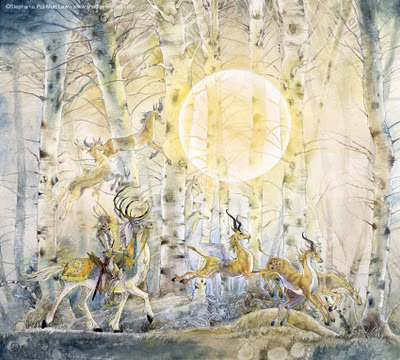 ...the greatest part
...the greatest partOf mankind they corrupted to forsake
God their Creator, and the invisible
Glory of Him that made them to transform
Oft to the image of a brute, adorned
With gay religions full of pomp and gold,
And devils to adore for deities.
Paradise Lost, John Milton
This is a subject I have thought about nonchalantly for some time, taking it almost for granted with my own writing, until I was jostled by a little lack of information into considering it more seriously in general. Can I get any more vague than that...? The subject is that of religion in literature. I don't mean strictly fantasy, I mean historical fiction too (I consider science fiction to be a fantasy of a sort). The problem, I realized some time ago, is that you very rarely come across any signs, any gestures, any notion of religion in the pages of a book.
You might argue at first that this is because religion as a whole isn't usually the point of a story, and you don't want to muddy the waters, and you don't want to offend people, etc. I would like to respectfully blow both of those notions back where they came from. If you take a good look at human history in an over-arching sense, the way an eagle might look at a landscape, you will discover a wildly colourful but always persistent drive toward worship. Mankind has an inherent need to worship, and almost frantic need to worship. You will find that in every society you study, in every age you choose. Man will build a pantheon before he builds a code of law. It is so basic to his nature, so deeply woven into his psyche, so human that I find the lack of it in literature to be startlingly unrealistic.
So does every story have to be about gods and men, appeasement and atonement? Not always directly, of course not. But when you have a driving way of life, a paradigm that lies closer about a man than his own clothing, don't you think it a bit odd that it so rarely surfaces in stories about mankind? When I read I find two common default religions in stories: in the fantasy the religion of the character is his quest and his devotion to accomplishing it; in historical fiction (rather more accurately) the religion is that of self. But I have to read that back into the text because I'm looking for it. The author probably doesn't realize it at all. So acknowledge it! In The Eagle of the Ninth, which is one of my favourite novels, there is a scene in which Marcus desperately, ardently beseeches his god Mithras to clear the skies so that the smoke-signal can get through. It is pure paganism, and of course I don't agree a whit with the man, but I agree with the author for putting it in there. It would have been ludicrous for Sutcliff to have portrayed her soldier any differently. He was a centurion of the Roman army, a follower of the Persian god Mithras (who had become a favourite among Roman soldiers). It was not only accurate to history, it was accurate to man.
How do you show religion? There was a time not very long ago when religion was the cadence of life. You could not go a week without the community partaking in the heartbeat of it. Longer ago than that, before truth sorted out the muddle of religion, you had sacrifices and feast-days, a regularity and an importance of regularity that bound not only the people to their gods but the people to each other. That is a hard thing to miss and it is not hard to show. In historical fiction it might be as simple as noting the Sabbath hush that falls over a village, in fantasy it can be as subtle as a charm over a door to ward off evil. It need not be right (though I hope you know what right is) but it ought to be accurate, which a truth itself; and it ought to be there, if only to add another dimension to the story.
My novel The Shadow Things, rather less than subtle, took this bull by the horns. It takes place in a time when religion oppressed, when gods were to be appeased, not loved, and atonement was a word whose definition was not understood; it's grim, it's dark, but it's true. And in retrospect, looking back from the high vantage point of years in a culture levened by Christianity, I as the author and hopefully you as the reader can appreciate what kind of "religious" world the truth was going out into, and working against, and transforming. I might have made the gates of hell a little less grim, a little less resisting, but that would have been untrue. Yes, they gave way in The Shadow Things, but it was a hard and gruesome fight all the same.
However you do it, whether blatantly or subtly, don't forget this important aspect of humanity: he must worship something, and that need is too obvious to ignore even in literature.
"Oh—something!" he ejaculated, too flustered to know exactly what to swear by.
Published on December 14, 2011 06:08



